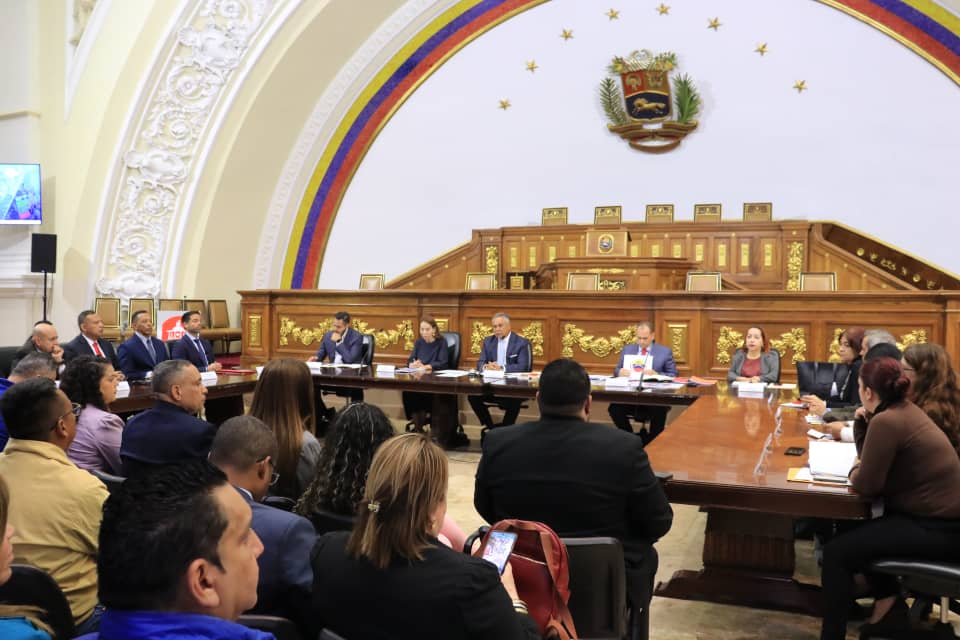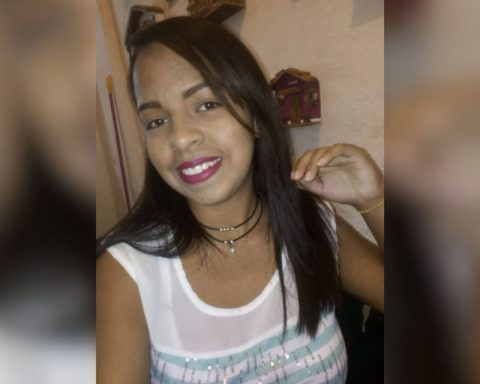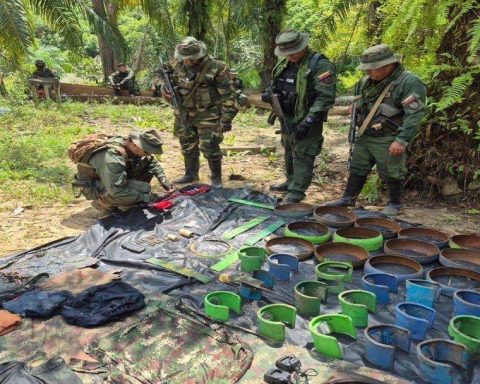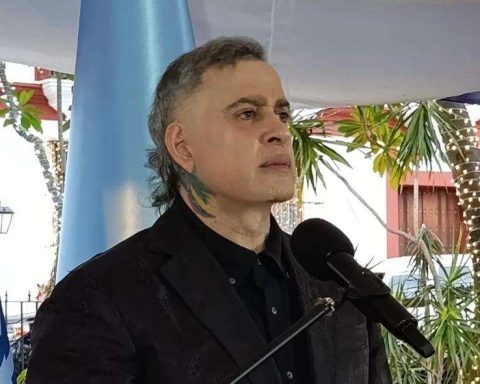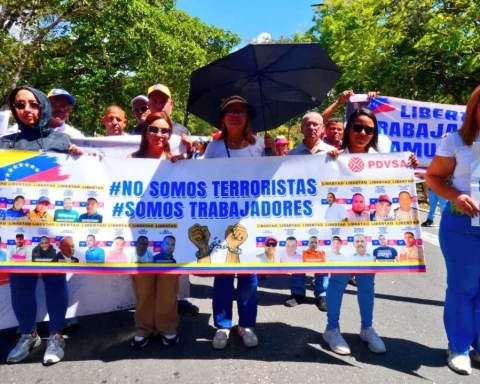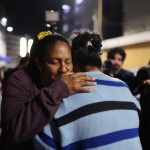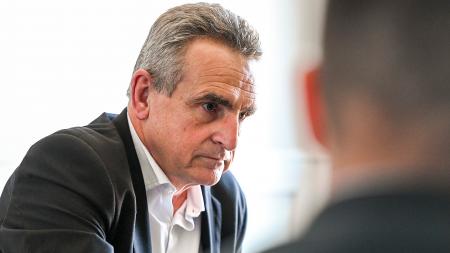The People’s Power Minister for Interior Relations, Justice and Peace, Remigio Ceballos Ichaso, reported on Tuesday that “permanent monitoring of those who exercise political violence in the country” is being carried out, and stressed that he knows of “Uribe’s connections and Duque, and that of his paramilitaries, with the criminal gangs” that operate in Venezuela, “whose connections are clear,” he said.
Likewise, he assured that his office has created an information center against crime, where the national data of all these criminal organizations is available.
Ceballos reiterated that after the attack on the police command in Las Tejerías, by the criminal gang, which occurred at the beginning of this month of February, it was discovered that several of the shots came from the mountains, for which reason he presumes that several of the criminals were They were in the mountainous areas surrounding the scene, while stressing that they have so far captured seven of the criminals, and continue to investigate.
Likewise, the official revealed that in the next few days his office will deliver supplies of materials and strategic equipment to the police officers located in the areas close to the
downtown regional highway, in order to strengthen the capacities of these security forces.
Such statements arose during the development of the extended meeting of the Permanent Commission of Internal Policy of the National Assembly, held in the protocol chamber of the National Assembly, and chaired by deputy Pedro Carreño, and in which the general public defender, Daniel Ramírez, also participated; the director of the Scientific, Criminal and Forensic Investigations Corps (Cicpc), Douglas Rico; the Minister of People’s Power for the Penitentiary Service, Celsa Sirley Bautista, and representatives of the Ombudsman’s Office; among others.
For his part, Deputy Carreño during the day also referred to the criminal gangs that keep the population of Las Tejerías terrified, which he described as paramilitary groups that with their actions try to disturb the stability of the country.
He assured that there are political factors behind these gangs, which they intend to use for the purpose of destabilizing, as occurred with the assassination attempt against President Nicolás Maduro, because “three days before this event, the attacks by the Coqui gang occurred at Cota 905”, he said.
He declared that “gangs defy the State, and when someone acts like that, you have to be severe, a situation that must be resolved in urgent time,” in favor of peace, he declared.
They seek to improve the prison situation
This Tuesday, during the extended meeting of the Permanent Commission of Internal Policy of the National Assembly, deputy Pedro Carreño made a proposal that seeks to improve the penitentiary situation in the country.
In the activity, he raised the need to resume “three fundamental axes such as the application of trials in freedom, supported by article 44 of the National Constitution, which establishes that” personal freedom is inviolable, consequently: no person may be arrested or detained except by virtue of a court order, unless
is caught red-handed”, such a measure, according to the legislator, would contribute to decongesting the preventive detention centers that exist in the different police forces in the country.
As a second axis, he proposed the right to the presumption of innocence, as established in article 49 of the Constitution, in which every person is presumed innocent until proven otherwise, and as a third axis he proposed conceiving the penalty as element of rehabilitation, and stressed that if the deprivation of liberty does not contribute to the social reintegration of people, “we are not doing anything.”
Likewise, he highlighted the importance of training and education in prisons for social reintegration.
On the other hand, he called attention to avoid cases of denial of justice, which, he said, occur when the prisoner is detained in one state but his trial occurs in another state, “that is denial of justice, a situation that should be corrected.”
Likewise, he informed that the application of the new plans on the prison system will begin to be applied after Carnival in preventive detention centers,
located in zone 7 of the Bolivarian National Police, in Boleíta, and at the Cicpc headquarters, in Parque Carabobo.
Within the framework of these three axes, Minister Ceballos presented a project, with the aim of overcoming the weaknesses of the Venezuelan penitentiary system, which he called a plan to relaunch the penitentiary system within the framework of the 3R Nets, which allows “the total control to help guarantee due process and respect for the human rights of those deprived of liberty.” He explained that through the plan it is intended to offer comprehensive care to inmates
